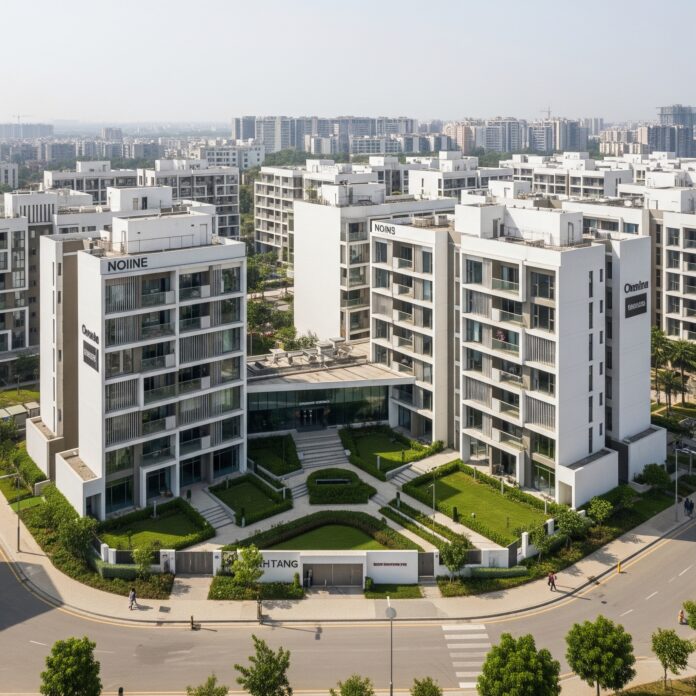The Noida Authority has rolled out a comprehensive redevelopment policy, approved on June 14, designed to rejuvenate aging and deteriorating residential complexes into modern living spaces. This initiative specifically targets buildings over three decades old or those independently assessed as structurally unsound.
Central to this new framework is the requirement of 70% consent from leasehold residents before any redevelopment can commence. Current flat owners are guaranteed new units without cost, receiving a minimum 15% increase in usable floor area. During the reconstruction phase, developers are obligated to provide either temporary housing or monthly rental compensation. As an added incentive, the Authority plans to waive stamp duty and lease rent charges on the updated lease deeds for the revamped flats.
The policy encompasses three main categories of properties: complexes originally built by the Authority, cooperative housing societies (such as those at Rail Vihar and LIC Society), and projects by other private developers.
The redevelopment strategy is built upon four pillars: enhancing structural safety, upgrading amenities, improving environmental standards, and enforcing stringent accountability for developers. To ensure the financial viability of these projects, the Authority will increase the Floor Area Ratio (FAR) from 1.5 to 2.75, allowing developers to construct and sell additional units to offset costs.
Historically, the Authority, established in 1976 under the UP Industrial Area Development Act, began offering multi-storey housing in 1981, leasing plots to private builders and constructing low-rise homes for economically weaker sections. However, inadequate maintenance led to significant structural issues like seepage, creating unsafe living conditions. While Apartment Owners’ Associations (AOAs) often managed minor repairs, critical structural assessments and retrofitting were frequently overlooked, leaving buildings vulnerable to severe weather and seismic activity.
The new policy introduces a streamlined single-window system for approvals and will oversee the distribution of rent to relocated residents. The upgraded complexes will boast contemporary features such as EV charging stations, rainwater harvesting systems, and sewage treatment plants.
Developer selection will vary based on the project type. For Authority-developed societies, a competitive bidding process will be employed. Conversely, cooperative and private housing societies have the autonomy to select their own builders, provided they demonstrate a strong track record and financial stability. A mandatory tripartite agreement involving the developer, the Authority, and the AOA will outline provisions for homeowner relocation, usable area entitlements, and project timelines. Developers are also required to register with RERA before marketing any supplementary units. Crucially, residents will not be displaced until temporary accommodation or rental compensation is secured, and developers are permitted to sell additional flats only after the original residents have taken possession of their new homes. The policy integrates robust accountability measures, including penalties and blacklisting for developers who fail to meet deadlines or violate agreements. A dedicated grievance redressal cell will be established to address complaints regarding delays, quality concerns, or reductions in usable floor area.

